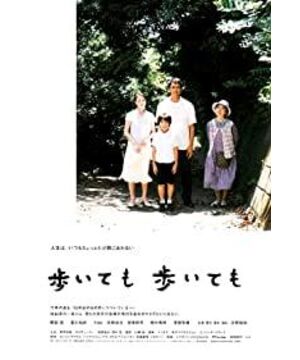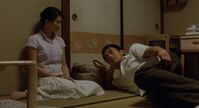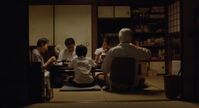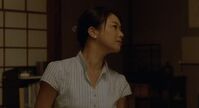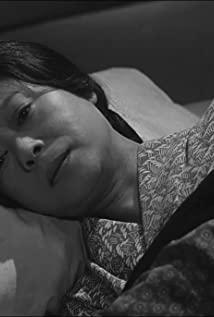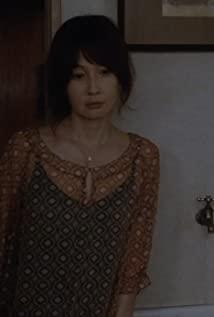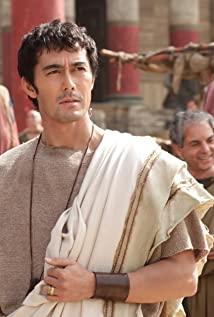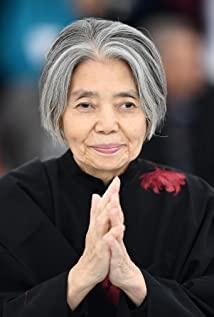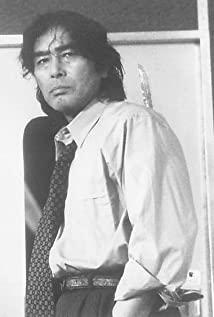Some commented that this film is Hirokazu Kore-eda's most classic one. Because it was the first time I came into contact with it, I put "Next Station in Heaven" and "Flower Warrior" on hold and read it quietly and carefully.
After reading it, I found that it was Shizhi who presented an ordinary picture of Japanese family life for the audience; trivial records of family affairs, natural and real emotional dialogues, and every scene could become the freehand brushwork of Miyazaki's "Reminiscence Bit by Bit". like painting. The relationship between characters, arranged and combined countless times, states different dialogues and relationships in the combination, expresses some life concepts and attitudes, and implies the influence that rejects contradictions and is closely related. Complicated, subtle, beautiful, tender, there are also some gathering, pain, nostalgia, gratification and so on.
In fact, those who are attentive can naturally find that one generation of film directors influences the succession of one generation, from Yasujiro Ozu to Hirokazu Kazueda, and even Hou Xiaoxian and Yang Dechang who have crossed the ocean. The connection is the careful handling of some techniques, some attitudes of attention, and some characteristics of the times.
At the end, three generations of men are on the beach, facing the sea, the emotional communication is elevated to a new level, and the relationship between the characters is also clear. This is the inheritance, the subtle influence, the continuation and accumulation of life.
The young men left, and the old men staggered down the mountain road on loud wooden shoes.
On the way, my father said: The next time I come will be the New Year. In the car over there, my son said to his wife, "I regret staying for an extra day."
A narration sounded in the backs of the old people: Three years after Heiji Mountain, my father went, and my mother, who had been chatting with my father, followed shortly after. Those good wishes all drifted away with the wind. I didn’t play football with my father, and my mother didn’t get into a private car in the end. It seems that so many have been missed
forever. What happened." This is what the son said on the day of the family reunion, and when the butterfly appeared in front of the parents' graves again, it was like a metaphor, the music sounded, and life was so unknown and sad, continuing on the mountain road, walk down slowly...
View more about Still Walking reviews


